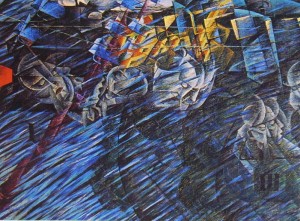By Paola Chesi and Maria Giulia Marini
 The training of the healthcare professionals joining the ISTUD’s Applied Narrative Medicine Master is going on: in the second module, they had the opportunity to meet three international experts in Narrative Medicine and Medical Humanities.
The training of the healthcare professionals joining the ISTUD’s Applied Narrative Medicine Master is going on: in the second module, they had the opportunity to meet three international experts in Narrative Medicine and Medical Humanities.
The borders of our interests and our research enlarge more and more, and arrive overseas, at the MCPHS Boston University (Massachusetts College of Pharmacy and Health Sciences), in which Carol Ann Farkas is professor at the universitary course dedicated to future physicians and nurses “Literature and Medicine”, intended to examine the disease experience not only from a clinical point of view, but also through narratives: a way to exercise active listening, reflection, comprehension, and to complete the training of future professionals that will have to learn to take care of people. Carol Ann was the “virtual” guest of the first training day, and, through a conducted dialogue after the showing of “The Elephant Man” by David Lynch (1980), she gave an example of how to comprehend the human disease experience through filmography – without removing from actual socio-cultural contexts, on the contrary analyzing and interpreting them. The same film will be projected shortly at the MCPHS University with the Medicine and Nursing, and it will be interesting to confront reflections and analysis emerged in two different training and healthcare contexts: an extraordinary and innovative experience of exchange and union of points of view.
Second great Medical Humanities expert was Maria Vaccarella, researcher and professor at the Centre for Humanities and Health (King’s College London), one of the more important Narrative Medicine reference center in the world. Among the new research projects, Maria is involved in Narrative Bioethics, a surely actual theme, faced by some great names of Narrative Medicine, such as Arthur Frank, Howard Brody, and Rita Charon: it defines the narrative approach contribution to the bioethical issues, in a process of union of clinical and existential reasons. Through patients’ and familiars’ narrative collection, through the family history reconstruction, these issues are faced including difficult ethical choices, such as continuing with clinical intervention or suspending it. And this, inserting them in the life context, in a society that is more and more getting older, removing the possible idea of death. [1]
The European scenary enriched, finally, with the contribution of Silvia Rossi, researcher at the Paris Ouest-Nanterre University, who is consolidating her Narrative Medicine experience in the French reality. Getting into the use of narratives, we faced the language analysis, and more precisely the meaning of the metaphors in autobiographies of people living a disease experience. Metaphor, not as a simple and ending in itself artifice, but as a real tool to communicate life reality. Overtaking the “war on disease” cliché, metaphors reveal their vision of the experience and possible strategies to unify different “characters” of the story, each one with a role and a point of view. To testify the major potentiality of narratives in respect to the simple stories collection, it was presented a model-experience based on cancer narratives collection, in the context of a project of rearrangement and planning of the cancer care plan in Ile de France. A very beautiful example of the extraordinary power of stories, which – if collected and analyzed methodically and with a choral action between patients, caregivers and decision makers, could really contribute to reach a sustainable healthcare system.
Our international network is enlarging: it has the purpose to unite international best practices with italian experiences, to give Narrative Medicine more recognition and applicability. If, on one hand, we are proud to have hosted, among several Narrative Medicine international experts, two italian women with great rewards abroad, on the other hand we are displeased because they had to leave their country to be in the academic world. So, other two narratives on how, in Italy, researchers don’t have future; but Silvia and Maria were glad to have come back to teach us.
[1] See “Let’s talk about dying” by Peter Saul.
